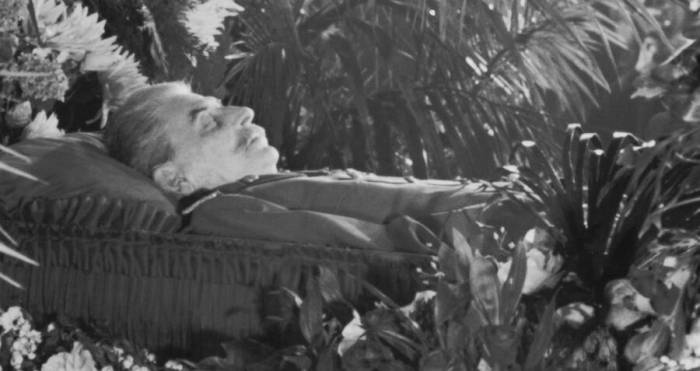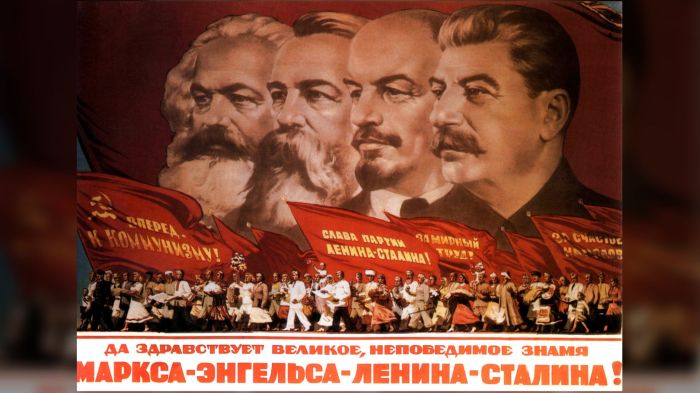Why did soviets follow stalin so eagerly despite his atrocities? The answer to this question lies in a complex interplay of socio-economic factors, political propaganda, and the charismatic leadership of Joseph Stalin himself. This essay will explore these factors in detail, shedding light on the reasons why the Soviet people willingly followed Stalin, even as he committed heinous crimes against them.
In the aftermath of the Russian Revolution, the Soviet Union faced severe economic hardships and social inequalities. Stalin’s promises of economic improvement and social justice resonated with the masses, who were desperate for change. He skillfully exploited these conditions to gain popular support.
Socio-Economic Factors
During Stalin’s rule, the Soviet Union faced severe economic hardships and social inequalities. Collectivization and industrialization policies disrupted traditional livelihoods, leading to food shortages, poverty, and unemployment. The gap between the elite and the masses widened, creating a sense of injustice and desperation among the population.
Stalin’s promises of economic improvement and social justice appealed to the masses. He presented himself as the champion of the workers and peasants, vowing to create a more equitable society. These promises provided hope and a sense of purpose to those who had suffered under the previous regime.
Political Propaganda and Censorship

Stalin’s regime employed an extensive propaganda machine to glorify his leadership and demonize his opponents. Mass media, education, and the arts were controlled to promote a cult of personality around Stalin. Propaganda portrayed him as an infallible leader, while his critics were labeled as traitors and enemies of the people.
Censorship played a crucial role in suppressing dissent and creating a climate of fear. Critical voices were silenced, and alternative viewpoints were banned. The secret police, the NKVD, enforced strict surveillance and punishment for any perceived opposition to Stalin’s authority.
The Great Purge

The Great Purge was a systematic campaign of terror and repression carried out by Stalin’s regime from 1936 to 1938. The purge targeted political opponents, ethnic minorities, and anyone perceived as a threat to Stalin’s power. Millions of people were arrested, imprisoned, or executed without due process.
The purge instilled widespread terror in the population. People feared speaking out or expressing dissenting opinions, knowing that they could face severe consequences. This atmosphere of fear and intimidation silenced opposition and ensured Stalin’s unchallenged control.
Charismatic Leadership

Stalin possessed a unique combination of personal qualities and leadership skills that contributed to his popularity and influence. He was a charismatic orator who could inspire and motivate his followers. His unwavering determination and ironclad resolve gave him an aura of authority and strength.
Stalin cultivated a cult of personality around himself. He was portrayed as a father figure, a savior, and the embodiment of the Soviet state. This cult of personality played a significant role in shaping public opinion and solidifying Stalin’s position as the undisputed leader of the Soviet Union.
Limited Alternatives

The lack of viable alternatives to Stalin’s rule further contributed to his enduring popularity. Political opposition was suppressed, and democratic institutions were non-existent. People had no other options but to accept Stalin’s leadership, even if they disagreed with his policies or methods.
In the absence of alternatives, people were forced to conform to Stalin’s demands to ensure their survival and well-being. Fear of reprisals, the lack of choice, and the absence of viable alternatives played a significant role in the Soviet population’s adherence to Stalin’s rule.
FAQ Guide: Why Did Soviets Follow Stalin So Eagerly Despite His Atrocities
Was Stalin a popular leader?
Despite his atrocities, Stalin enjoyed widespread popularity among the Soviet people. His promises of economic improvement and social justice, combined with his charismatic leadership and the suppression of dissent, contributed to his enduring popularity.
Why did people fear Stalin?
The Great Purge instilled terror in the Soviet population. Stalin’s secret police, the NKVD, carried out mass arrests, executions, and forced labor. People lived in constant fear of being denounced or arrested, creating a climate of paranoia and self-preservation.